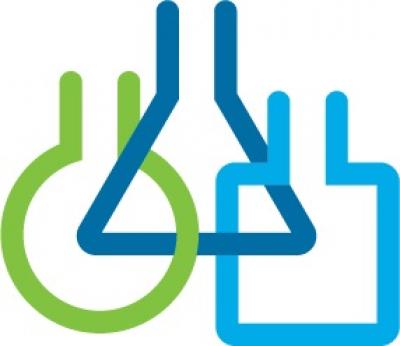Children’s Tumor Foundation research advances understanding of brain tumors

Credit: CTF Beakers
Treatment for low-grade gliomas in patients living with neurofibromatosis type 1 are now one step closer thanks to recent research discoveries initiated and funded by the Children’s Tumor Foundation.
Recognizing the critical need for a better understanding of gliomas affecting neurofibromatosis (NF) patients (tumors affecting the brain and nervous system), the Children’s Tumor Foundation (CTF) has spearheaded a multi-million dollar initiative focused on the molecular characterization of NF1 gliomas. This significant investment, with the generous support of James and Laurée Moffett, Flashes of Hope, CureNFwithJack and other supporters, has brought together for the first time leading experts committed to taking on this glioma challenge. In order to support this all-star team of researchers, CTF funded two large-scale NF1 glioma studies, each with substantial funding of $2 million over three years.
“When we started this project, studying low grade glioma was deemed impossible, because there just weren’t enough available samples to study”, said Annette Bakker, PhD, President of the Children’s Tumor Foundation. “It is true that low grade glioma tissue is very hard to find, so that’s why we needed SYNODOS – a worldwide effort to solve this ‘impossible’ problem.”
The first Synodos study, a low grade glioma consortium, is a multi-institutional study of pediatric NF patients, led by Dr. David Gutmann of the Washington University School of Medicine in St. Louis and Dr. Michael Fisher of the Children’s Hospital of Philadelphia, along with collaborators from the German Cancer Research Center in Heidelberg and the University of California, San Francisco.
The second Synodos study, led by Dr. Antonio Iavarone of Columbia University in New York, along with collaborators from both Columbia and the University of Sannio in Italy, focused on gliomas of all grades from patients across all age groups. Their work has just recently been published in Nature Medicine, showing that immunotherapy has the potential to impact gliomas. More details on this finding are detailed below.
Together, these two projects have carried out the first comprehensive worldwide NF1 glioma analysis study that is identifying genetic, epigenetic, and metabolic alterations; extracting and modeling driver alterations; studying the effect of the tumor microenvironment; and ultimately developing targeted therapies for NF1 gliomas.
Since their inception, both groups have collected and analyzed over 100 high quality tumor samples from across the world, most of these samples having matched blood. Given the rarity of such samples and an even rarer availability of blood from the same patient from whom the tumor was biopsied, this is indeed an impressive accomplishment. Work is ongoing to develop various in vitro and in vivo models to validate the findings from the data analysis. Both groups of researchers have presented their results at various national and international conferences, including the recent 2018 NF Conference in Paris, at which nearly 900 experts gathered together for the largest NF research meeting in history.
In the published Nature report, Dr. Iavarone identified 19 new NF1 germline mutations and, for the first time, compared low grade and high grade NF1 gliomas, thereby identifying genetic signatures, expression, and methylation patterns. Mutations in the ATRX gene were uniquely characteristic of high grade gliomas, making ATRX a potential therapeutic target.
“Our goal is to give NF patients actionable treatment options. In my view, telling an NF parent to ‘watch and wait’ as NF affects their child is unintentionally cruel and incredibly unfair,” said Dr. Bakker. “Of course, we’re realistic about the challenges. Low grade gliomas are difficult to find because surgery is rarely done. We need a ‘Synodos’ to bring the world together and find enough samples and group the expertise to study them. We’ve just proven that Synodos is a great model to study rare tumors and watch: we’re using the same Synodos approach to find answers for NF1, NF2 and schwannomatosis.”
###
Media Contact
Simon Vukelj
[email protected]
212-344-7568
Original Source
https:/
Related Journal Article
http://dx.




